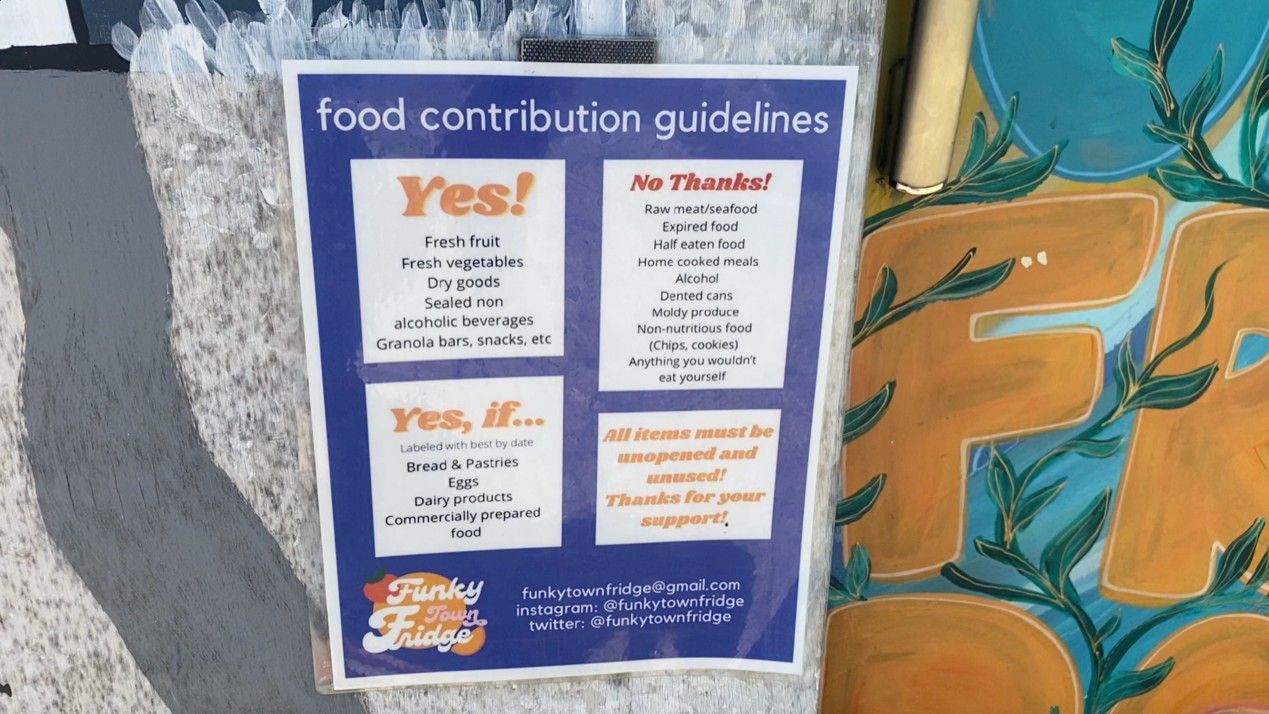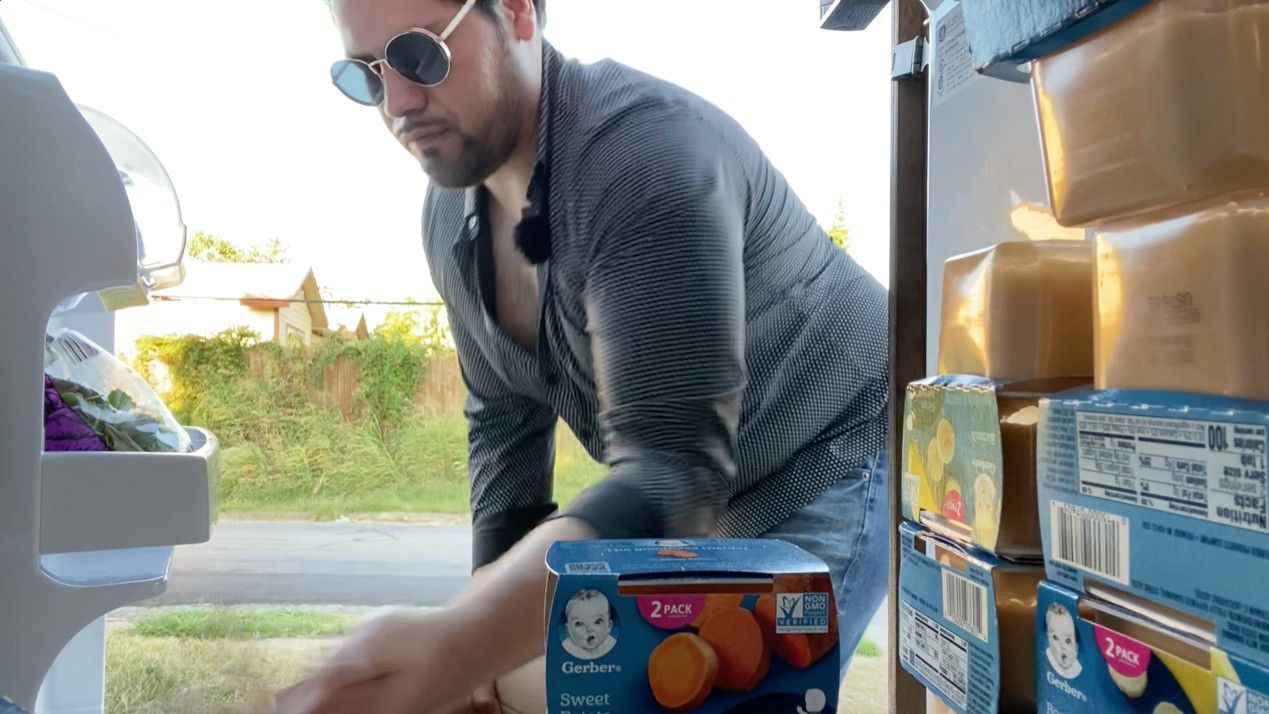FORT WORTH, Texas — When Isdebaldo Herrera found out about Funky Town Fridge and the need for donations, he decided to do something about it right away.
"I had some free time, and I just got some food to drop off," Herrera said.
That is the purpose of Funky Town Fridge: Fort Worth residents contribute what they can to feed other residents in a time of need.
"We place refrigerators outside of buildings like this one and have them open and accessible to the public 24/7," said Kendra Richardson, founder of Funky Town Fridge.
The project eliminates any intimidation barriers that could keep people from getting the food they need.
"We want it to be accessible. We don't ask questions. We don't monitor the fridges. We don't police the fridges," Richardson said.
The fridges are placed in neighborhoods where nutritious food accessibility is a challenge.
"[One that exists] in food apartheid neighborhoods, which is what we call them that don't have resources for foods, for natural foods, for whole foods," she said.
It is an issue that is noticeable just by looking around in the areas they serve.
"It's true. There's not a lot, and like I said, there's a school right in front of us, so you never know, maybe parents might need some food for the kids on a daily basis, and this is a good spot," Herrera said as he dropped off his food donation.

The initiative is also helping reduce food waste, as Herrera said, oftentimes donating his food before it has spoiled when life gets too busy.
"I don't think I'm gonna be able to finish it, so I'm just gonna drop it off for someone else to come pick it up," Herrera said as he placed food in the fridge located at the United Fort Worth Community Justice Center.

He is not alone. Nearly 40 million pounds of food are wasted every year in the United States. That is about 219 pounds per person, while people in U.S. cities are still going hungry.
Herrera said he wants to encourage others to take a close look at their pantry and fridge as he did.
"You know, if you have some extra food at the house, why not share it with someone else, especially here in the community," he said.
At its core, that is how Richardson was able to launch the first fridge on her own.
"This was to look for what you had right in your own kitchen and see what's not spoiled and what you don't eat," she said.
The goal is to keep it going to make a long-term positive impact and improve communities of color.
"[It's] a seed that we're planting for people to build their own healthy and sustainable lifestyles," she added.
Herrera is eager to try to make sure it happens.
"Knowing so many people, I'm sure there's gonna be a lot of people who are gonna be interested in coming to drop some food off as well," he said, vouching to help spread the word about Funky Town Fridge.



